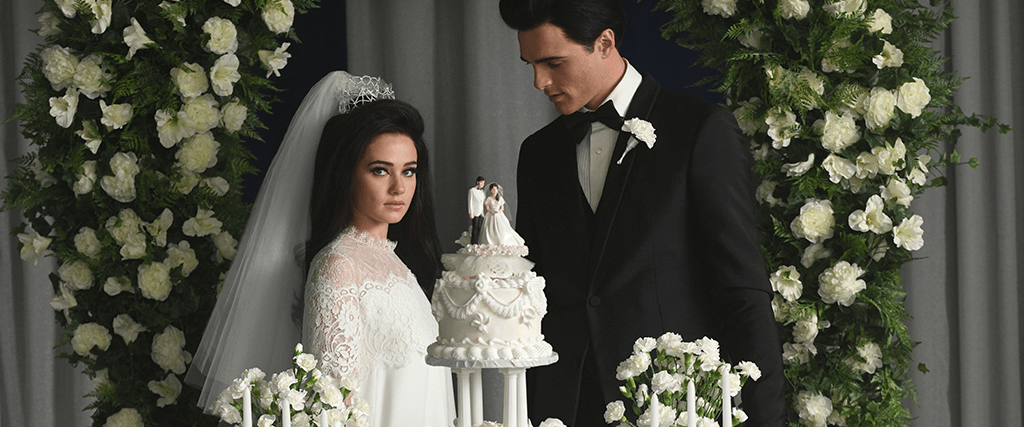
Top 10 Films of 2023
By Brian Eggert | December 30, 2023
Listmaking is a fun, somewhat obligatory, and ultimately meaningless exercise. Not a year goes by that I don’t look back at a list and think this or that title should be swapped. Why did I rank that one so high? I put what on the list? Sometimes, after publishing my list, I see a movie from that year and regret not having it in my Top 10. If I remade my lists from previous years, they wouldn’t look like they do today. If I remade the list below again tomorrow, it would probably look different as well. But it’s today, and it’s time to rank my favorite films of 2023. So here it is, such as it is—my ranking of the top films from the last year. At this moment, I stand by the list. Tomorrow, I make no promises.
To see my list of the Top 25 Films of 2023 and read additional commentary on the year, join DFR on Patreon.
HONORABLE MENTION: Perfect Days
Wim Wenders recaptures the arthouse magic of his earlier work in the New German Cinema movement with his latest feature, which he co-wrote alongside Takuma Takasaki. In an almost silent performance, Koji Yakusho stars as a custodian for the real-life company The Tokyo Toilet, a luxury lavatory business in Japan’s capital. The film juxtaposes the character’s menial job and seemingly empty daily routine with hints of his inner life, a rich world of great music, photography, and restrained love. The lead performance is among the year’s very best, while the story recalls elements of Wenders’ Paris, Texas (1984), about a man who finds a way of processing his pain in a manner that makes sense to him, leading to an eventual outpouring. While it’s a deceptively simple portrait of an overlooked blue-collar worker, it’s also a moving examination of how to accept life as a series of ups and downs, and receive all things with a measure of grace.
RUNNER-UP: Are You There God? It’s Me, Margaret
Kelly Fremon Craig captures the spirit of Judy Blume’s writing in her adaptation of the oft-banned book, giving those without access to the text another method of interacting with Blume’s characters and life lessons. Although its 1970s-era takes on femininity, puberty, religion, and identity have been called dated by some, its themes still resonate in a story that is both specific and universal. The characters live and breathe here, particularly the expanded-upon mother (Rachel McAdams, who deserves some awards consideration for her heartfelt supporting role) and Margaret (Abby Ryder Fortson, excellent). After the underseen The Edge of Seventeen (2016), Craig delivers another coming-of-age story that performed poorly at the box office but will surely be discovered and celebrated in the years to come. Plus, for those unfamiliar with the impact of Blume’s book, this year’s documentary Judy Blume Forever offered an encapsulation of her career to put this material in context.
10. Killers of the Flower Moon
Adapted from David Grann’s nonfiction book, Martin Scorsese’s massive production, backed by Apple Original Films, is the kind of film studios should be spending $200 million on. Headlined by Leonardo DiCaprio, with superb supporting performances from Lily Gladstone and Robert De Niro, this accounting of the Osage Nation murders in the 1920s uncovers a disturbing chapter in American history. The film led to all manner of debates in public discourse this year—what constitutes enough representation, who should be telling stories like this one, and why such stories get buried in history. Beyond all the extratextual conversation, Scorsese delivered a fast-paced three-and-a-half-hour film that explores a familiar theme for the director: Cognitive dissonance and the way people compartmentalize the horrible things they do out of selfish ambition. Not only does that theme materialize in Scorsese’s portraits of gangsterism and criminality, but it’s also a recurring theme in 2023’s best films, including May December, The Zone of Interest, and others.
9. You Hurt My Feelings
The latest from Nicole Holofcener may not appear on many Top 10 lists this year, but there’s something to be said for the pitch-perfect execution of her observant relationship comedy, featuring a career-best performance by Julia Louis-Dreyfus. It’s an unassuming film, without a flashy production or conspicuous aesthetic, but it’s executed exactly as it should be. The narrative is a classic walk-and-talk affair about New Yorkers who wear cozy clothes, live in comfortable apartments, and have problems that prove ever-so relatable. Louis-Dreyfus’ novelist character learns that her husband (Tobias Menzies) doesn’t actually like her latest manuscript, though to her face, he has claimed to enjoy it. Holofcener explores what constitutes a “good lie” and what honesty might get you, all while also grappling with the insecurity of creatives and the impact that can have on a marriage. Holofcener’s characters feel rich and alive, and the film made me laugh, cry, and feel a sense of recognition for the behaviors onscreen.

8. Priscilla
Refusing to romanticize or place the public’s beloved “King of Rock and Roll” on a pedestal as Baz Luhrmann did in last year’s Elvis, Sofia Coppola adapts Priscilla Presley’s autobiography for a disturbing and critical look at Elvis through Priscilla’s eyes. Played by Cailee Spaeny in a performance of necessary internalization, which will probably go unfairly overlooked come awards season, her character’s dominated and oppressed identity throughout gradually leads to a cathartic finale. Priscilla is a quiet, shy, and captivated early teen when she first meets The King (Jacob Elordi). His behavior is that of a groomer and possessive control freak who tries to keep the passive Priscilla like a child keeps a doll. However, Coppola, who refuses to accent the film with Elvis hits, builds to a final scene that feels like an emotional breakthrough, aching though it is, after so much manipulation. The film’s overwhelming effect, from the performances to the immersive production and costume design work, ranks it as Coppola’s best feature to date.
7. R.M.N.
Best known for 4 Months, 3 Weeks and 2 Days (2007) and Graduation (2016), Romanian filmmaker Cristian Mungiu’s film centers on a small Transylvanian village with layers of culture and a history of intolerance. Mungiu drew inspiration from a real-life town hall meeting video, where all manner of prejudicial behavior could be witnessed. In his film, people of German, Romanian, and Hungarian descent argue over whether so-called outsiders from Sri Lanka should work in their local bakery. Mungiu explores how humanity has a short memory about land and how it’s been inhabited by various human cultures over time, and the animals long before us. And yet, exceptionalism and self-importance leads to a restrictive, hateful sense of othering, all based on a false, culturally imposed sense of entitlement. The film is about what Jean Renoir might deem the grand illusion that we’re all different in some way, and how those arbitrary divisions and borders we create don’t mean anything.
6. The Zone of Interest
Hardly a prolific director, Jonathan Glazer returns with his first feature since 2013’s brilliant Under the Skin, bowing a film that’s both a disturbing look at the Holocaust and a reflector of our times. Situated firmly in the arthouse mode of filmmaking, to the extent that some passages feel like they could double as a modern art installation, Glazer adapts Martin Amis’ 2014 novel into a conceptual film that considers an SS officer’s family, whose property shares a wall with Auschwitz. Although their home and gardens appear beautiful and orderly, they live within earshot of genocide, creating a nightmarish and haunting contrast of visual and aural information. While depicting a horrific scene from recorded history, the film is not merely a look back; it’s a warning sign that apathy and compartmentalization allow inhuman behavior to continue, unquestioned. Few 2023 films were as thoughtfully and rigidly composed with a form-follows-function approach as Glazer’s passionate, accomplished fourth feature.

5. Past Lives
Playwright Celine Song made an extraordinary and incredibly ambitious debut with Past Lives, a drama about how each new path we choose redefines us. Greta Lee gives a subtle and resounding performance as Nora, a Korean-born writer Song based on herself, wrestling with her identity. In fact, the whole story is drawn from Song’s experiences with a childhood boyfriend who reentered her life, though she was married. Filled with what-if yearning and moving dialogue that openly discusses the complex feelings at the center, the film offers an aching look at how we can never return to an older version of ourselves—each of us is rebuilt when we make choices. Teo Yoo and especially John Magaro give fleshed-out turns as Nora’s old boyfriend and current husband, respectively, in a film that seems like a quiet romance, except there’s an intricate intertextuality and formal agenda working toward building Nora’s identity.
4. May December
Inspired by the tabloid fodder of Mary Kay Letourneau, May December takes a sharp look at complex characters who present themselves one way but have a mass of confusion and emotions swirling underneath. Natalie Portman introduced director Todd Haynes to Samy Burch’s screenplay, no doubt spotting how the material contained familiar themes for the filmmaker. Haynes’ choices throughout are as nuanced as the performances from Portman, an actress shadowing her next role; Julianne Moore, a woman who went to prison for sleeping with a minor; and Charles Melton, the man-child who was victimized and brainwashed by Moore. Accented with surprising humor and a delightfully ironic score by Marcelo Zarvos, the film never sacrifices its characters for its style, which has all the layers you would expect from Haynes. Given all the surfaces and artifice at work, it’s impossible to fully understand any of these characters. But when they look in the mirror, you might see a glimpse of who they really are, or perhaps not. Either way, the film invites you to keep looking, even if all you see is a false front.
3. The Taste of Things
Trần Anh Hùng’s beautiful and nuanced filmmaking entrances the viewer in cooking, using long takes that follow the elaborate processes of high French cuisine from a century-and-a-half ago. Benoît Magimel plays chef Dodin Bouffant, whose relationship with his head cook and lover Eugénie (Juliette Binoche) improves his recipes and his quality of life. Binoche, as ever, is a transfixing screen presence who lends an incredible dimension to her role, the power of which isn’t realized until it’s too late. Together, Dodin and Eugénie’s commitment to their art comes first, and all else is secondary, even their eventual marriage. For the 134-minute runtime, The Taste of Things transports us into a sensuous world of phantom tastes and smells, propelled by the atmospheric and ever-moving camerawork by Jonathan Ricquebourg. It’s a sumptuous and warm setting, inhabited by characters who use meals, and the effort that goes into making them, to communicate their feelings. Its effect is profound and all-consuming.

2. Showing Up
Similar to The Taste of Things, Kelly Reichardt’s new film is about an artist whose single-minded commitment to her art makes all personal relationships secondary. Michelle Williams, who has starred in several of Reichardt’s best films, once again disappears into her role as Lizzy, a beleaguered Portland sculptor who’s preparing for her next show. While dealing with her out-of-sorts brother (John Magaro), inattentive landlord (Hong Chau), and professional rivalries, the protagonist can be prickly, obsessive, and demanding, often to funny and uncomfortable extremes. What resonated with me, beyond the all-around excellent performances or even Reichardt’s assured if restrained formal approach, was the theme of Lizzy’s tireless passion for her creative work. I identified with Lizzy’s sometimes misanthropic devotion to her art, and recognized aspects of myself in her moody behavior. It’s a quiet and deceptively light film for Reichardt, but it resonates with an intense quality of self-recognition.
1. Poor Things
Transgressive, taboo-breaking, and subject to heated debate in some circles, Yorgos Lanthimos’ surreal and feminist Frankenstein-style narrative features the year’s best performance, by Emma Stone. She stars as Bella, an out-there embodiment of comic delights, irrepressible desire, and impulsive behavior created in a lab. The film involves an infant’s brain going into an adult woman’s body, creating a new kind of monster that matures at an exponential rate and doesn’t fit into any kind of conventional definition of a human being. Lanthimos’ film critiques the men who would victimize and control women, delivering a story about a person developing outside of and emerging from a patriarchal world with a sense of her selfhood, desire, and power intact. Lanthimos, ever commenting on human behaviors and disturbing social norms in exaggerated ways, tests his audience’s grasp of the story and its themes with its confronting subject matter. Some have failed that test.
Every aspect of Lanthimos’ film has been heightened: the suggestive costumes and production design; the wildly mannerist performances from Stone and Mark Ruffalo; the pseudo-Victorian fantasy world in which it takes place; the absurdist humor; the highly stylized camerawork, ranging from silent-era influence to modern CGI extravaganza; the narrative of debauched self-discovery and eventual empowerment. Lanthimos’ production exists in a similar mode of filmmaking extremes as the cinema of Ken Russell or Terry Gilliam, who enjoy pushing limits and boundaries. Poor Things is endlessly funny, thought-provoking, and visually inspired, and the result is a sensory overload, which requires repeated viewings to spot every gag and appreciate every detail. These are rare qualities I love in a film, and they will keep me coming back for years to come.
Thank You for Supporting Independent Film Criticism
If the work on DFR has added something meaningful to your love of movies, please consider supporting it.
Here are a few ways to show your support: make a one-time donation, join DFR’s Patreon for access to exclusive writing, or show your support in other ways.
Your contribution helps keep this site running independently. However you choose to support the site, please know that it’s appreciated.
Thank you for reading, and for making this work possible.
Brian Eggert | Critic, Founder
Deep Focus Review




